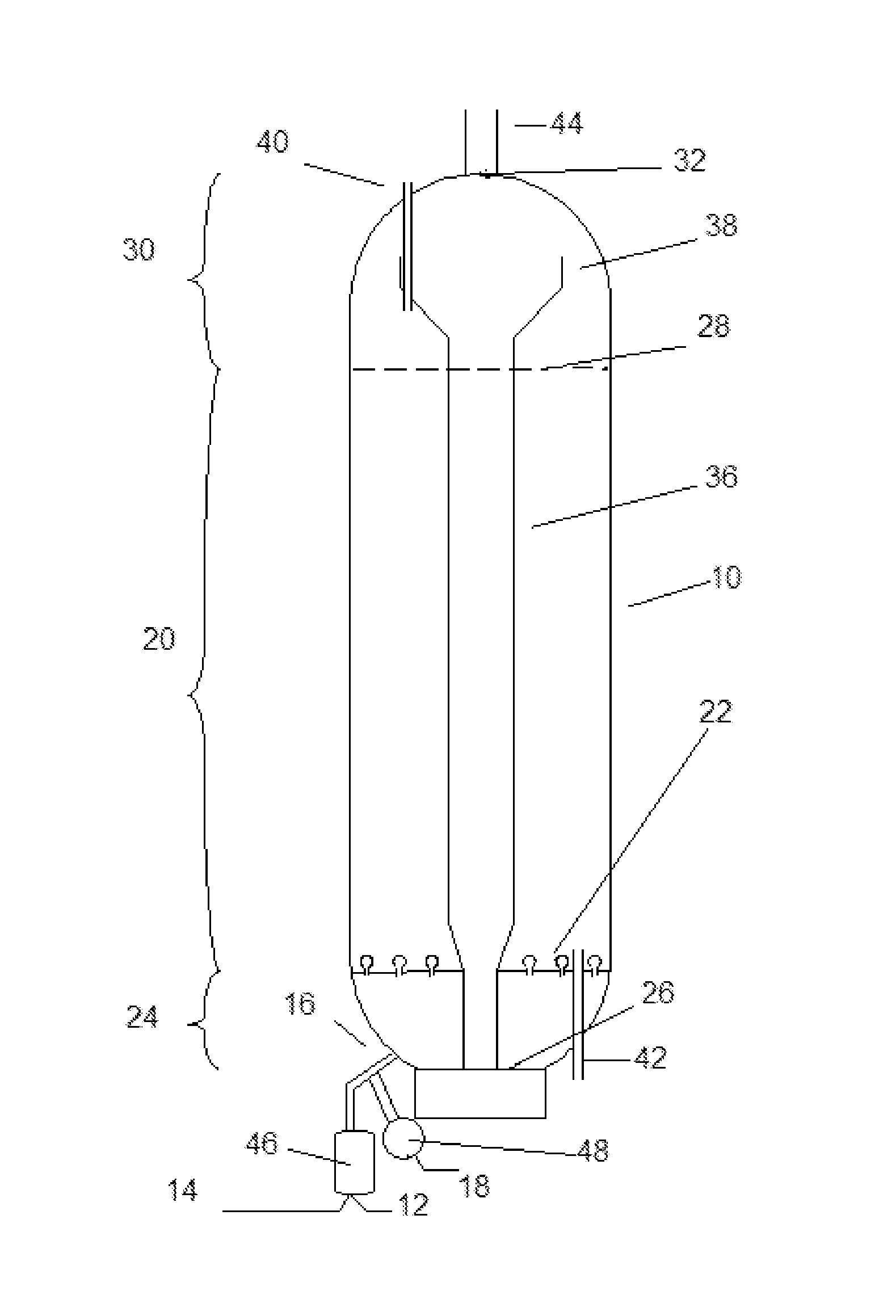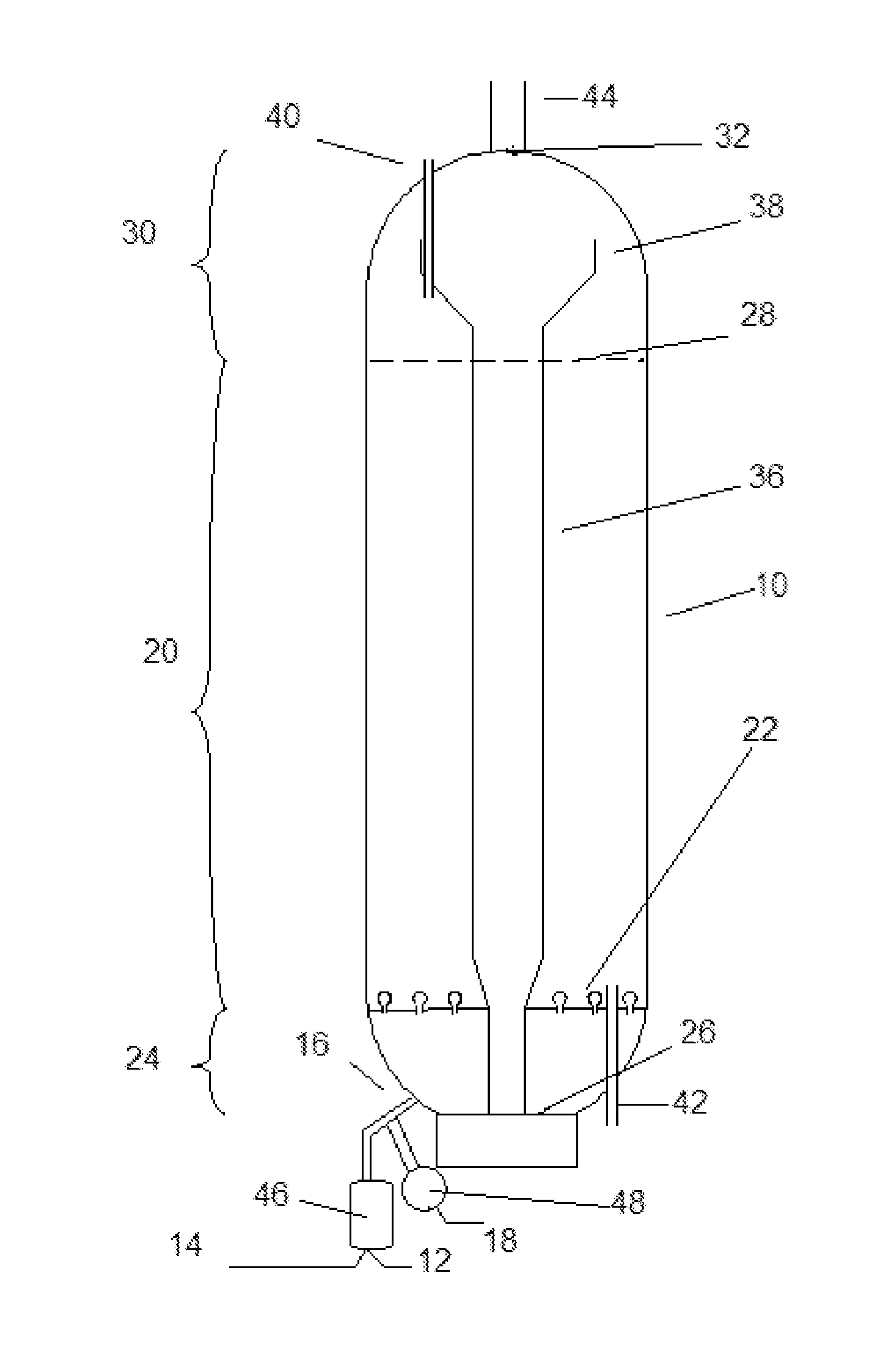Hydroprocessing Catalysts and Methods for Making Thereof
- Summary
- Abstract
- Description
- Claims
- Application Information
AI Technical Summary
Benefits of technology
Problems solved by technology
Method used
Image
Examples
example 1
[0103]A commercially available particulate catalyst from Advanced Refining Technology (ART) was provided as a particulate catalyst. The particulate catalyst had a nominal cross-sectional diameter of 0.04 inch and a length of 0.1 inch to 0.4 inch, and contained 10% by weight molybdenum and 5% by weight nickel on an alumina base. Properties of the particulate catalyst are listed in Table 1.
TABLE 1Particulate CatalystRework MaterialMolybdenum content, wt. % 10 wt. % 10 wt. %Nickel content, wt. % 5 wt. % 5 wt. %Surface Area, m2 / g 288 m2 / g 288 m2 / gPore Volume0.724 cm3 / g0.724 cm3 / g(by mercury porosimetry)Mesopore Volume (by mercury0.162 cm3 / g0.162 cm3 / gporosimetry in 100-300 A range)
example 2
[0104]The particulate catalyst was dried for 1 hour under nitrogen at 400° F. A 1% dimethyldisulfide (DMDS) solution in heptane was injected for 1 h at 350° F. and at a pressure of 300 psi before ramping the temperature to 450° F. Sulfiding was maintained for 14 hours at these conditions before introducing a 6% DMDS solution and increasing pressure to 800 psi followed by ramping to 650° F., where the temperature was maintained for 2 hours.
example 3
[0105]A sample of the particulate catalyst of Example 1 was ground, and the fraction that passed through a standard 650 mesh screen was collected as rework material. Properties of the rework material are listed in Table 1.
[0106]An unsulfided catalyst slurry containing 92 grams of the rework material and 7562 grams of the diluent blend having properties listed in Table 2 was prepared.
PUM
| Property | Measurement | Unit |
|---|---|---|
| Fraction | aaaaa | aaaaa |
| Fraction | aaaaa | aaaaa |
| Pore size | aaaaa | aaaaa |
Abstract
Description
Claims
Application Information
 Login to View More
Login to View More - R&D
- Intellectual Property
- Life Sciences
- Materials
- Tech Scout
- Unparalleled Data Quality
- Higher Quality Content
- 60% Fewer Hallucinations
Browse by: Latest US Patents, China's latest patents, Technical Efficacy Thesaurus, Application Domain, Technology Topic, Popular Technical Reports.
© 2025 PatSnap. All rights reserved.Legal|Privacy policy|Modern Slavery Act Transparency Statement|Sitemap|About US| Contact US: help@patsnap.com


